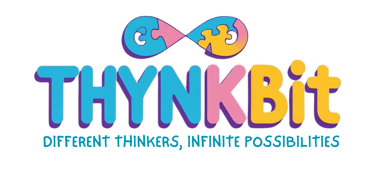💔 Walking the Emotional Tightrope: The Inner World of Parents Raising Autistic Children
Parenting is often described as a rollercoaster—full of highs, lows, surprises, and joys. But for parents raising children on the autism spectrum, that rollercoaster can feel more like walking an emotional tightrope. Every day is navigated with fierce love, deep worry, and unwavering commitment. Understanding the emotional experience of these parents is crucial—not only for offering compassion, but for building communities that truly support and uplift them.
6/27/20251 min read
🧠 The Silent Burden: Emotional Conditions Common Among Autism Parents
1. Grief Beyond Loss
This is not grief over the child, but over the parenting experience they imagined. It’s a quiet, often unspoken sadness of reorienting dreams.
“I didn’t lose my child. I lost the image of parenting I thought I’d have.”
2. Chronic Stress and Hypervigilance
Every routine, every meltdown, every moment matters. Parents live in a state of constant alertness—often physically and emotionally drained.
3. Anxiety: Today and Tomorrow
Not just about daily challenges, but long-term worries:
Will my child ever speak?
Will they have friends?
What happens when I’m gone?
4. Depression and Isolation
Exhaustion, misunderstanding, and exclusion can lead to deep loneliness. Social withdrawal is common—not due to lack of desire, but to protect themselves and their child.
5. Guilt and Self-Doubt
Many parents constantly question:
“Am I doing enough?”
“Why do I feel frustrated?”
“What if I’m failing?”
These thoughts weigh heavily—even when they’re doing everything right.
6. Frustration and Anger
Often directed not at their child, but at the broken systems, endless red tape, unsupportive relatives, or poorly equipped schools. Yet, parents often hide these emotions to appear strong.
🌱 The Other Side of the Coin: Strength, Growth, and Joy
Despite the challenges, many parents find extraordinary strength in this journey.
They learn patience, advocacy, and love at a depth few others experience. Small victories—eye contact, a spoken word, a new skill—are moments of celebration and pride. Love here is raw, resilient, and powerful.
💬 What Parents Wish Others Knew
“Don’t pity us. Just include us.”
“Ask how I am, not just how my child is.”
“Respect our choices, even if you don’t understand them.”
“Support doesn’t have to be big. Just being there matters.”
🤝 Building a Circle of Care
Supporting parents of autistic children means:
Creating inclusive schools and therapy spaces
Offering accessible mental health support
Providing respite care and flexible jobs
Reducing stigma around caregiver burnout and autism
🌟 Conclusion
Parents of autistic children walk a unique emotional path. Recognizing their challenges—and their strength—is the first step toward building a truly inclusive and compassionate world.


